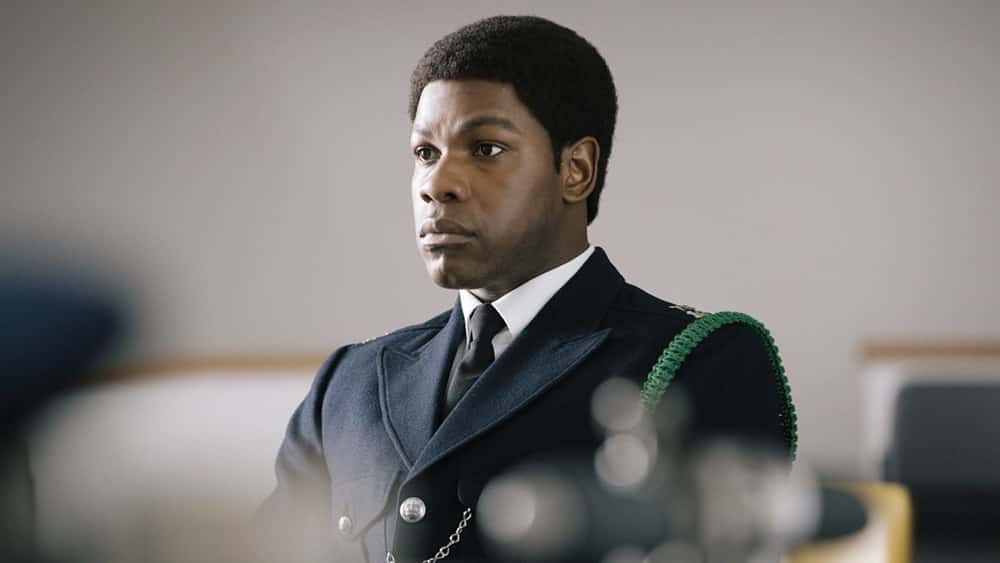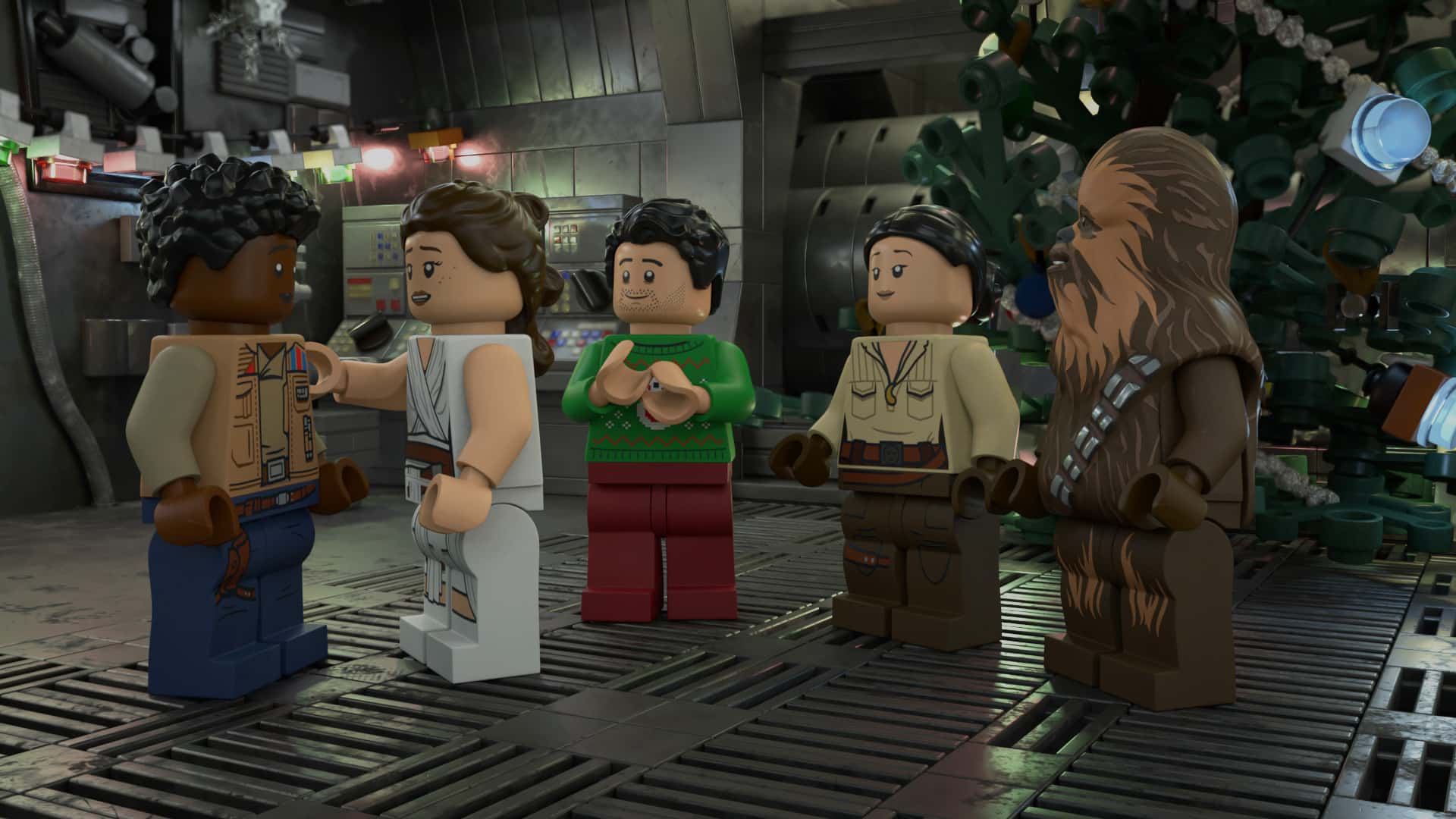Movie Review: Red, White and Blue
1st December 2020
Copyright: BBC
Whilst Mangrove and Lover’s Rock provided us with some truly exceptional filmmaking, the rest in this five-piece Steve McQueen series for the BBC strikes me with slight worry. Nothing major, just a bit of a wobble I suppose. Maybe it’s because we brace the unknown for the first time in this series, the first two episodes having toured film festivals some months ago. Red, White and Blue certainly prides itself on the inclusion of John Boyega, and rightly so. Not only that, but it’s McQueen’s second experience with detailing police impact on communities. We’re on the inside for much of this one though, as we watch the growth of Leroy Logan, the true story of a man who joined the police force to try and change their racist attitudes after his father was assaulted by officers right in front of him.
A noble motivation is presented to us, and Boyega immediately makes himself known as a grand screen presence. Shedding the Star Wars shtick he dealt with for the past few years with ease, he and McQueen craft a series of scenes that look to discuss and understand the prevalence of racism within the police service. If Mangrove were the justified rebellion in the face of harassment, Red, White and Blue is the attempt to understand the horrid reasoning behind it all. The first performance I’ve seen from Boyega that truly shows his acting abilities, he thrives in a leading role that paints him as a conflicted man, looking to do right not just for his family, but for the people side-lined and abused by the force.
A marvellously charged supporting role from Steve Toussaint as Leroy Logan’s father, Kenneth, brings us great motivation for Boyega’s attempts to appease his family and his passion. We’re given swathes of this passion, a series of training scenes verge on montage-like but manage to move past it and give us some exceptional moments that show ostracization, being between community families. At the same time as this, we’re given secondary narratives involving Kenneth Logan’s upcoming court case, a kid with musical talents, and a family life for Logan. A lot to unpack, and McQueen doesn’t get a chance to deal with everything, a shame since his narrative relies rather heavily on being able to relay a barrage of stylistic and narrative choices. He doesn’t quite manage it with this one.
Red, White and Blue is as touching as the other Small Axe pieces, that should be no surprise. Not quite as strong as the easy-going Lover’s Rock party attitude, nor quite as gripping as Mangrove, this third instalment to the Small Axe series is, as expected, a strong one. Red, White and Blue captures a unique viewpoint, one of dismissiveness in the face of social change, rather than headstrong animosity toward the ever-changing tide of justice. Hatred for no particular reason, horrid bullying presented in its ugliest form. It’s an interesting one, certainly untrodden ground for this sort of film, but I can’t help but think it’s lacking in one way or another. The lacking personal lives of these characters, and the effort presented to flesh them out in the opening twenty minutes makes it a little hard to swallow, but Small Axe has been compelling so far, and this is no exception.
![]()


